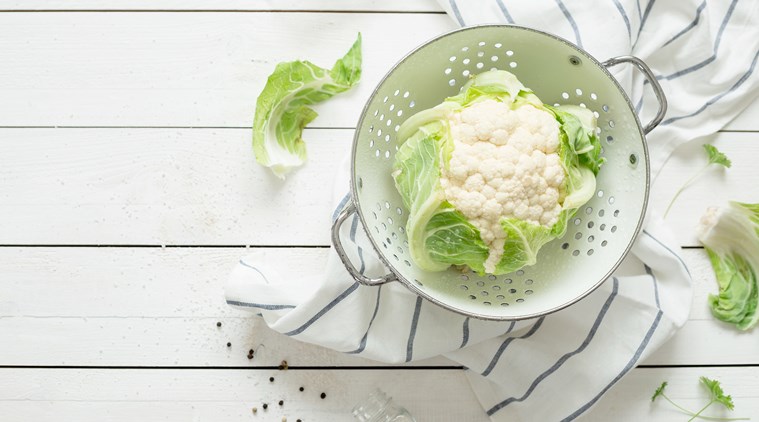Whip up some cauliflower in your diet. Here's why.

Regular consumption of fruits and vegetables is said to be immensely helpful for one’s health. From providing energy to the body to helping one fight diseases, vegetables are a rich source of antioxidants that must not be excluded from one’s plate. While one should add variety to their vegetable choices, cauliflower or phoolgobhi should be on top of their list.
Commenting on why one should include cauliflower in their diet, Union Minister of Health Dr Harsh Vardhan said on Twitter, “Cauliflower or phoolgobhi contains phytonutrients, fibre, Vit K & Vit C which work as a powerful antioxidant combination in the body. It also has sulphur & magnesium which neutralise free radicals that otherwise cause many diseases.”
Here’s why you should have the vegetable
*As a cruciferous vegetable that is naturally high in fibre and B-vitamins, cauliflower provides antioxidants and phytonutrients that can protect against several illnesses. The fibre in it is also said to enhance weight loss and digestion. It has choline that is essential for learning and memory, and many other important nutrients.
Studies have shown that dietary fibre may also help regulate the immune system and inflammation. As a result, it could help decrease the risk of inflammation-related conditions such as cardiovascular disease, diabetes, cancer, and obesity.
A higher fibre intake appears to help lower blood pressure and cholesterol levels, improve insulin sensitivity, and enhance weight loss for people with obesity.
*Cauliflower is known to keep bones healthy as it contains vitamin C, which helps with collagen production, and vitamin K, which may help prevent bone loss.
*It is also known to help with detox. It can prevent damage by carcinogens. It contains a fancy-sounding component called glucosinolates. This is what gives raw cauliflower its distinct smell – but it has also been shown to protect the lungs and stomach from common carcinogens.
*This low-carb vegetable can take the place of high-carb foods like bread, pizza and more. When your carb intake is lower, you’ll feel lighter and healthier.
There are so many recipes made with the vegetable including traditional gobhi paratha, or gluten-free cauliflower bread, or simply roasted cauliflower served as a snack. Here’s a quick one that is definitely worth a try.
How do you include cauliflower in your diet? Tell us.
For all the latest Lifestyle News, download Indian Express App
Source: Read Full Article



